Becoming a music producer is an exciting journey that blends creativity with technical skill.
It offers endless possibilities for artistic expression.
However, navigating this field without a guide can lead you to confusion and frustration 一 causing your projects to suffer or go unnoticed.
That’s why we’re providing an in-depth guide to equip you with essential tips and industry secrets to take your music production to the next level.
In today’s article, we’ll be breaking down:
- Music producer roles & responsibilities ✓
- Essential gear ✓
- The production process (from start to finish) ✓
- Professional techniques ✓
- Expert hacks ✓
- Business aspects ✓
- How to break into the music industry ✓
- Much more ✓
After this article, you’ll be well-equipped to make informed choices and become a professional music producer.
As well as produce high-quality music and start a successful career in the fast-paced (and exciting) world of music production.
So, let’s dive in…
Table of Contents
- Roles & Responsibilities of a Music Producer
- Creative and Technical Aspects of Music Production
- Various Types of Music Producers
- Essential Gear Every Music Producer Needs
- The Music Production Process: Start to Finish
- Techniques & Production Hacks: Elevating Your Music Creation Process
- Enhancing Your Music Creation Skills To Break Into The Music Industry
- The Business Side of Music Production
- Bonus: Working in a Recording Studio
- Music Producer: Final Thoughts
Roles & Responsibilities of a Music Producer
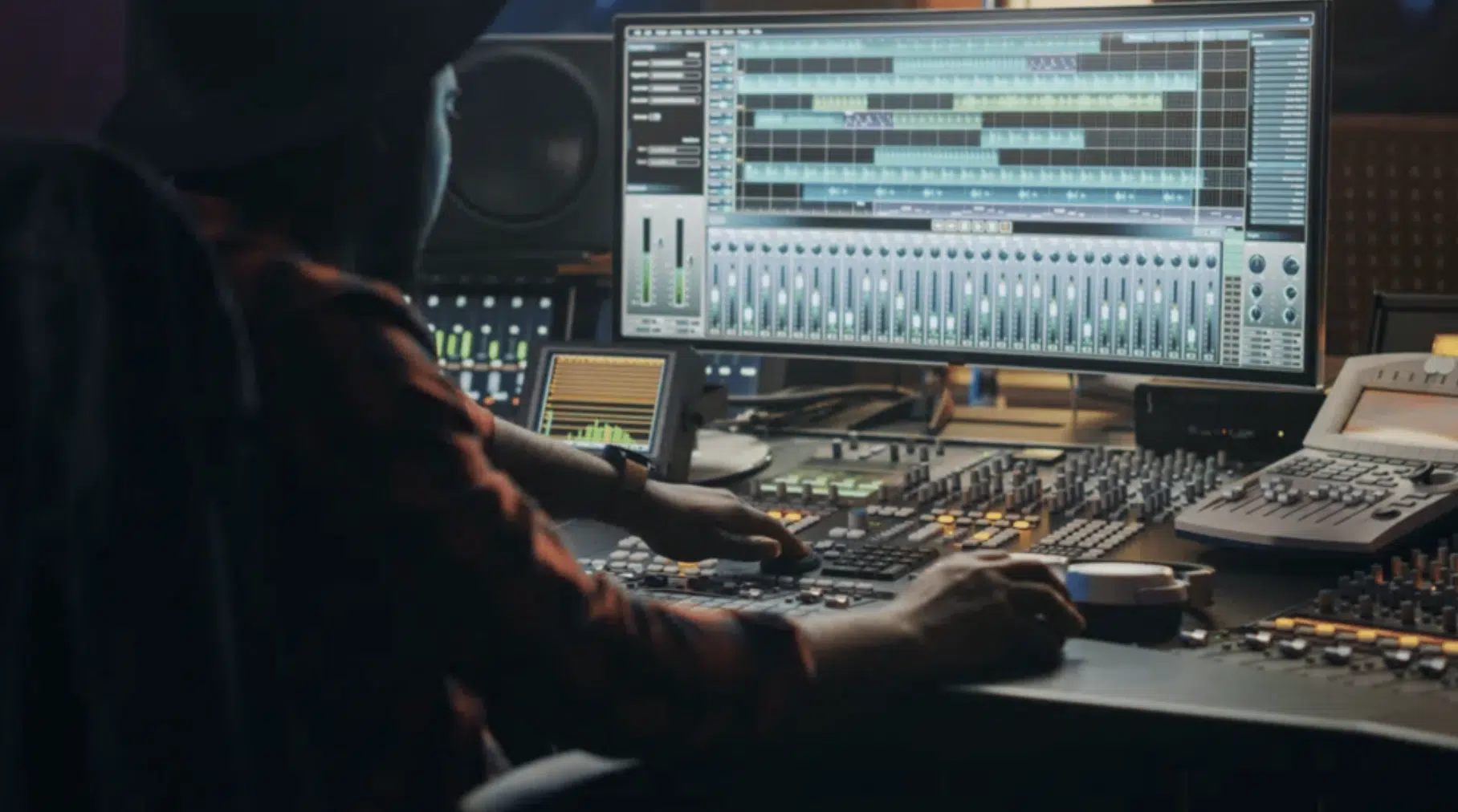
Learning how to become a music producer isn’t just about sitting behind a computer and making fire beats.
You’re the visionary that organizes every single element of a track.
Your roles as a music producer are diverse 一 ranging from choosing the right talent, composing or arranging music, and even taking on music business negotiations’ challenging aspects.
Yes, that includes dealing with record labels and other musicians.
As a music producer, your primary job is to guide the music-making process from a raw idea to a polished final recording.
First and foremost, you’re responsible for the quality of the music.
As a music producer, this responsibility includes choosing the right artists to work with and getting the best performances out of them.
Whether working with seasoned professionals or indie artists, your guidance can make or break a track.
Second is knowing all the technical and creative aspects of music production.
You need to have a grasp of everything from how to mic up a drum kit to understanding the intricate settings of digital audio workstations (DAWs).
This technical intellect will allow you to effectively translate your creative ideas into a high-quality recording and become a better music producer.
Lastly, you’ll need to be on point and professional.
As a music producer, you’ll often coordinate with everyone involved in the music production process.
Effective communication is key, whether it’s session musicians, sound engineers, a record producer, or even executives from a record label.
Your role is to ensure everyone is aligned with your creative vision, from the first beat to the final master.
When you walk into a recording studio, it looks professional if you know what they’re talking about and can add value to the process.
Creative and Technical Aspects of Music Production
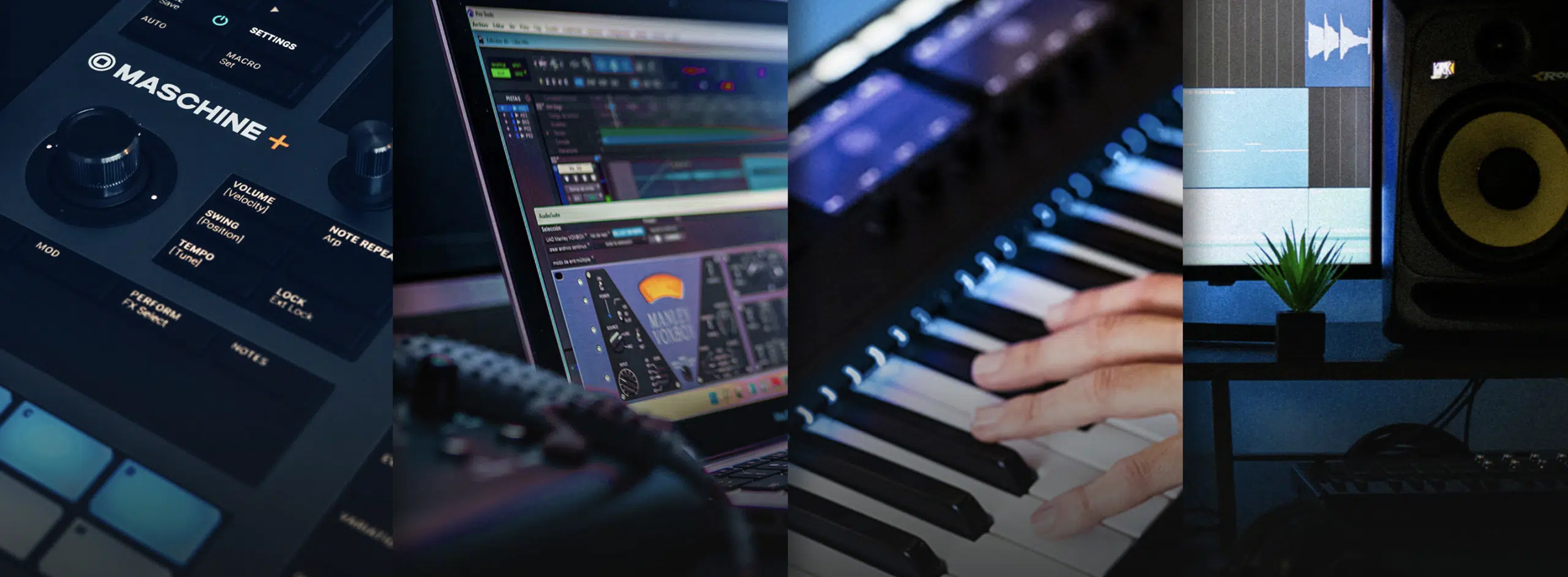
The art of music production thrives on a delicate balance between the creative and technical aspects.
The creative process in music production starts with brainstorming ideas for the track.
As a music producer, you’ll likely spend countless hours experimenting with:
Once you have a solid concept, you’ll begin laying down the foundation of your track, maybe starting with a killer drum loop or a captivating melody.
On the technical side, your focus shifts to the gear and software that turn your ideas into reality.
The technical aspects involve:
- Selecting the appropriate DAWs
- Setting up microphones
- Manipulating audio effects
- Etc.
The technical realm is where your music theory knowledge will prove invaluable, allowing you to turn your creative visions into high-quality music.
Advanced music producers often use sophisticated techniques like side-chaining and frequency splitting to make their tracks stand out.
As a music producer, a deep understanding of the technical aspects will enable you to troubleshoot problems that might arise during the music production process.
You’ll need a seamless blend of the creative and technical worlds to succeed as a modern music producer.
For instance, understanding music theory can inform your creative decisions, while mastering the technical aspects allows you to bring those ideas to life.
It’s a delicate relationship that fuels and enhances one another.
Various Types of Music Producers
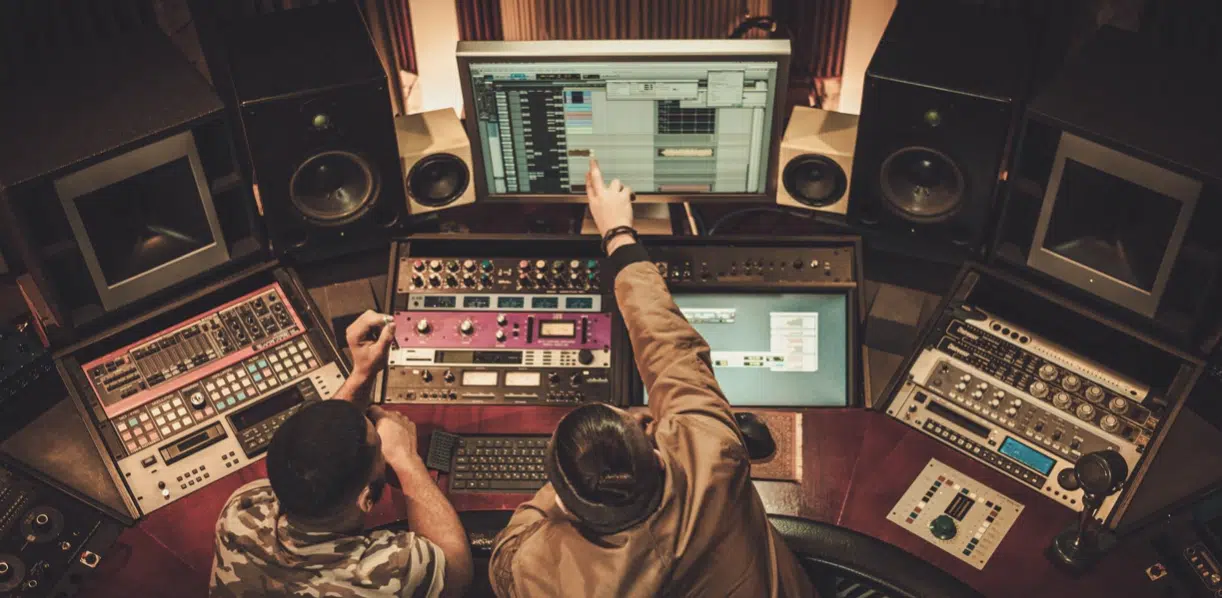
Not all music producers are created equal, as the role can vary significantly depending on the:
- Genre
- Magnitude of the project
- Specific demands
- Skill set requirements
- Etc.
Some executive producers or record producers handle the music business side of things, securing the funding for a project and managing its budget.
Then you have engineering producers, focused on the technical aspects of recording, mixing, and mastering.
These guys are wizards with DAWs and other studio equipment.
You might also encounter beatmakers 一 who are specialized music producers mainly focused on crafting the instrumental tracks over which artists can record vocals.
Beatmakers are often the unsung heroes of hip-hop, trap, and other genres reliant on complex rhythms and beats.
Hybrid producers are the Jack-of-all-trades in the music production world, capable of managing a project’s creative and technical aspects.
This type of music producer is incredibly versatile and equally comfortable brainstorming song ideas as they are tweaking EQ settings on a complex mix.
And let’s not forget about the vocal producers, who work specifically with singers to get the best vocal performance possible.
A vocal producer focuses on everything from the overall tone and emotion to the minute details of pronunciation and phrasing.
Essential Gear Every Music Producer Needs
Choosing the right tools is crucial for a music producer 一 it’s like selecting the right paint and brushes for a masterpiece.
So, let’s break down the essentials that every music producer needs.
-
Basic Music Production Equipment for Success

One of the first things you’ll need as a music producer is, of course, a powerful computer.
Most modern DAWs are resource-hungry; the last thing you want is to get bogged down by a slow system.
Headphones and studio monitors are next on the list.
Ensure you get quality equipment here 一 your ears will thank you later.
NOTE: And yes, for music producers, both are necessary.
Headphones are great for detail work, while monitors give you a sense of the room and the mix.
A MIDI controller is your next best friend as a music producer.
Whether crafting melodies or laying down drum patterns, a good MIDI controller provides tactile control over your DAW.
For recording acoustic instruments or vocals, a quality microphone is essential.
Even if you primarily produce digital music, having the option to record acoustic elements can add a unique flair to your tracks.
Don’t forget about your audio interface, which is the hub that connects your studio.
It handles inputs from your instruments and microphones and outputs to your monitors and headphones.
Lastly, you’ll need various cables, mic stands, and perhaps outboard gear like preamps or external effects units.
Ensure you’ve accounted for these in your ‘music producer budget.’
-
Choosing the Right DAWs
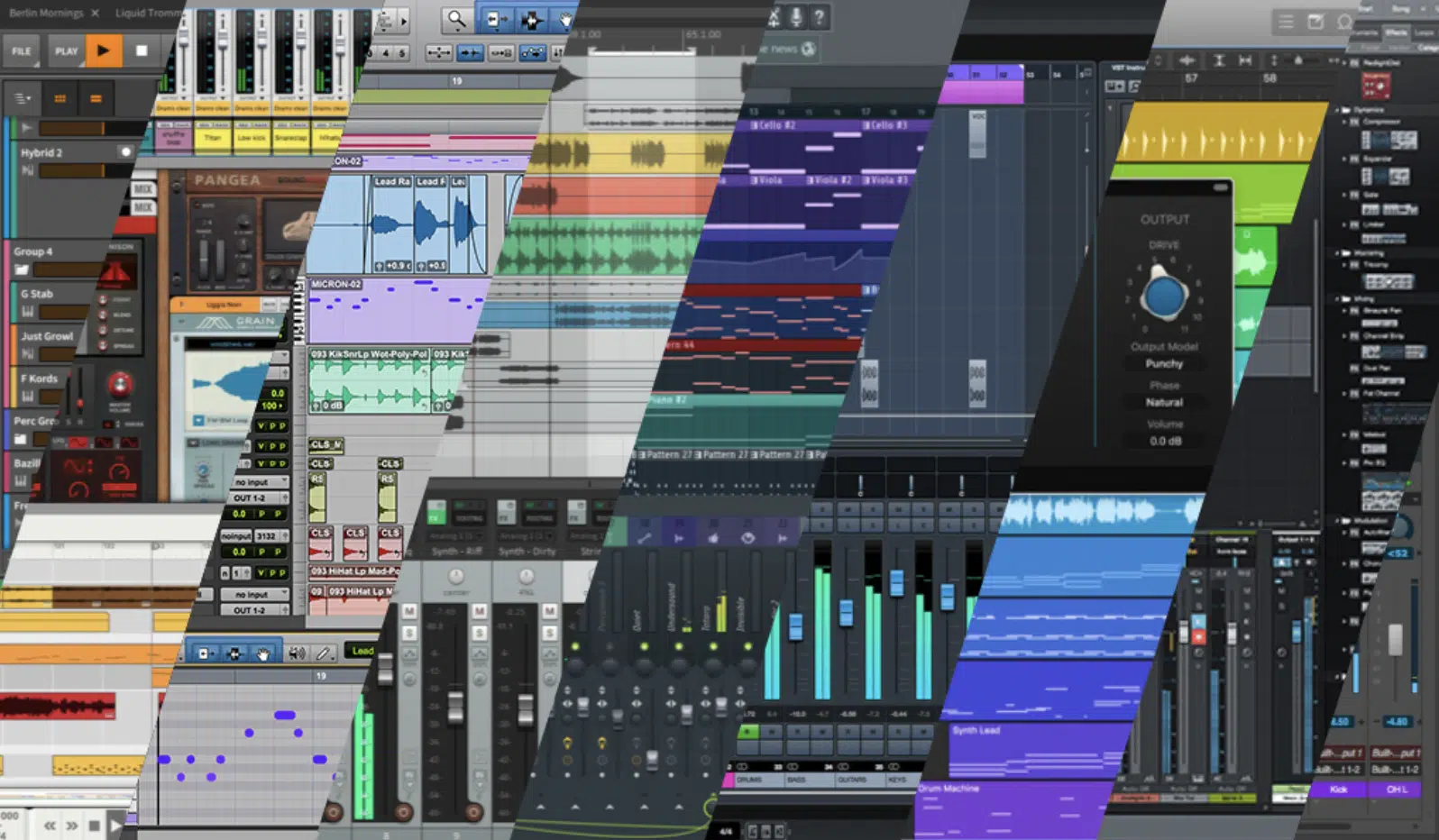
Your DAW is the backbone of your music production setup.
Different DAWs have different strengths and weaknesses, so when you’re learning how to become a music producer, the right choice depends on your needs.
Pro Tools is considered the industry standard and is excellent for recording live instruments and vocals.
Its audio engine and seamless integration with high-end studio equipment make it popular among professional recording studios and music producers.
NOTE: If you want to learn music production, Pro Tools is a software you should get familiar with, although it might be a tad overwhelming if you’re just starting out as a music producer.
If electronic music is more your thing, you might want to look into Ableton Live, FL Studio, or Logic Pro.
These DAWs offer powerful tools for electronic music production 一 from intuitive sequencing to robust sample manipulation.
Don’t overlook lesser-known DAWs like Reaper or Bitwig, which many professional music producers swear by.
These programs offer robust features at a lower price point, making them great options for music producers on a budget.
It’s also worth considering the learning curve.
Some DAWs are easier to start with but might lack advanced features, while others might be overwhelming but extremely powerful once you get the hang of them.
So, I suggest trying them out first and seeing which vibes with your particular workflow and style.
-
Setting Up Your Home Studio
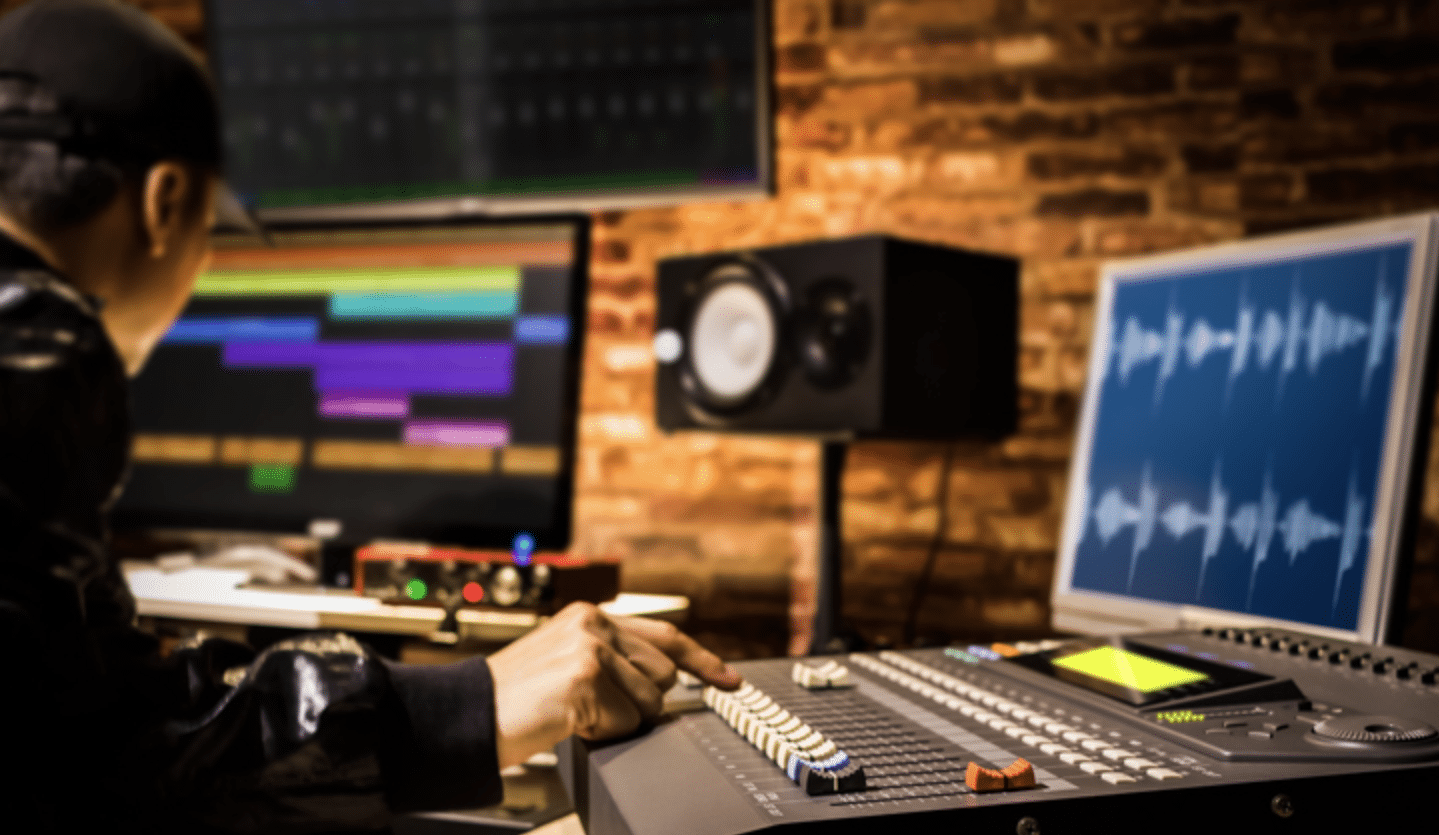
As a music producer in the digital age, you don’t need to book time in an expensive commercial recording studio to produce quality music; you can do it all in your home studio.
The first consideration is the room itself, as acoustics are everything.
You’ll need to understand basic room treatment (think soundproofing and bass traps) to ensure your recording environment is optimized for capturing the cleanest and truest sound possible.
Your next priority is selecting the right music production equipment, like a studio desk.
While you don’t need the most expensive equipment to produce great music, you shouldn’t skimp on quality.
Two must-haves as a music producer are:
- A robust computer, professional-grade audio interface
- A pair of flat-response studio monitors are must-haves
Quality microphones are crucial, too, especially if you plan to record live instruments or vocals.
As we just discussed, your home studio’s heart will be your DAW.
This music production software is where all the magic happens, from laying down your initial ideas to mastering your track.
There are numerous DAWs on the market, each with its strengths and weaknesses, so choosing one that fits your specific needs is super important.
Lastly, music producers often overlook ergonomic considerations but these can be critical for long hours spent in the studio.
You should:
- Invest in a comfortable chair.
- Place your gear properly & make sure everything is angled correctly.
- Make sure your screen is at eye level to prevent strain.
A well-thought-out home studio improves your work quality and workflow, enabling you to bring your musical visions to life more effectively.
The Music Production Process: Start to Finish
The music production process is meticulous and awe-inspiring.
So, let’s break down how to get from point A (the musical idea) to point Z (a finished, polished track) step by step.
-
Pre-Production & Planning
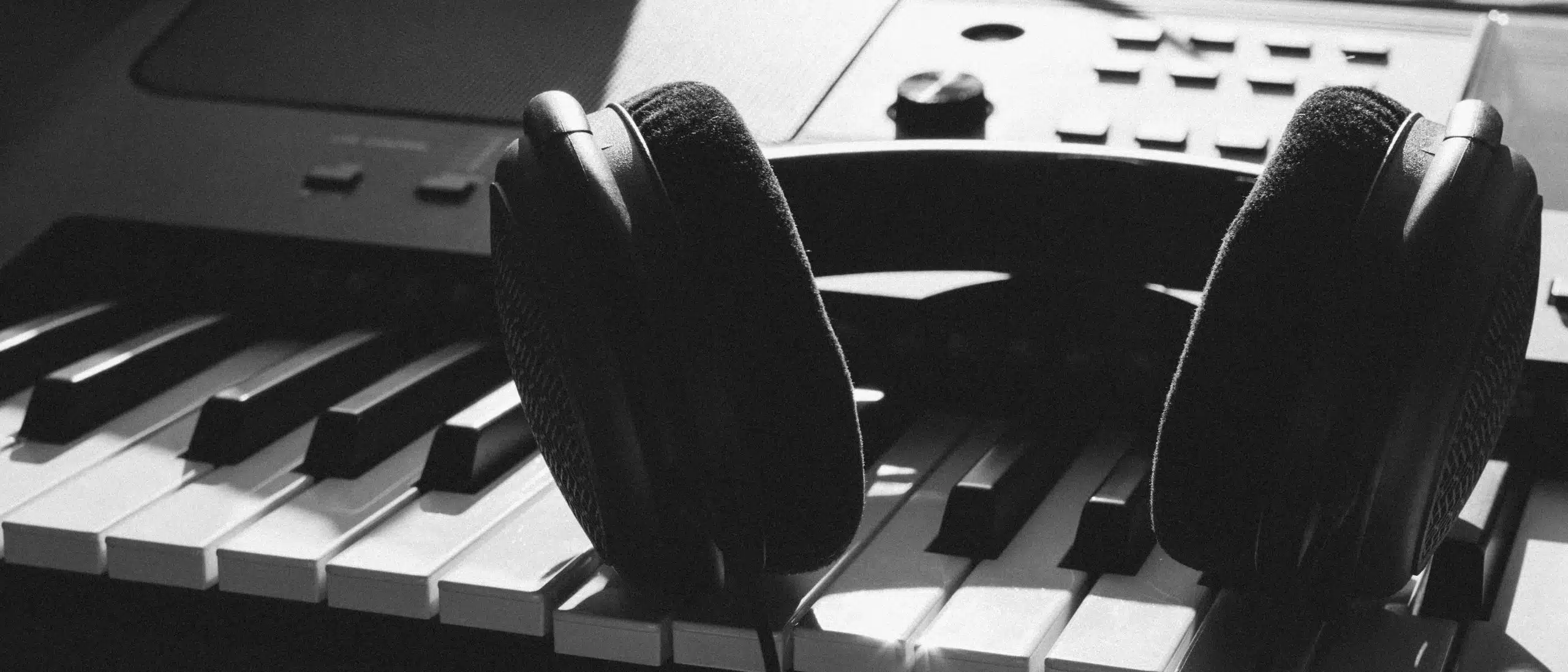
Pre-production is the blueprint of your project, so before hitting the record button, you’ll need to have a clear plan.
Discuss the project’s goals with any music producers, collaborators, or artists involved.
Are you aiming for an EP release, a single, or perhaps preparing tracks for a live performance?
At this stage, what’s most crucial is choosing the right:
- Vibe
- Tempo
- Key
- Time signature
- Ultimate goal
These choices will set the tone for your entire music production process.
Script your ideas, jot down the chord progressions, and sketch the song structure roughly.
This will serve as your roadmap during the recording process.
-
The Recording Process
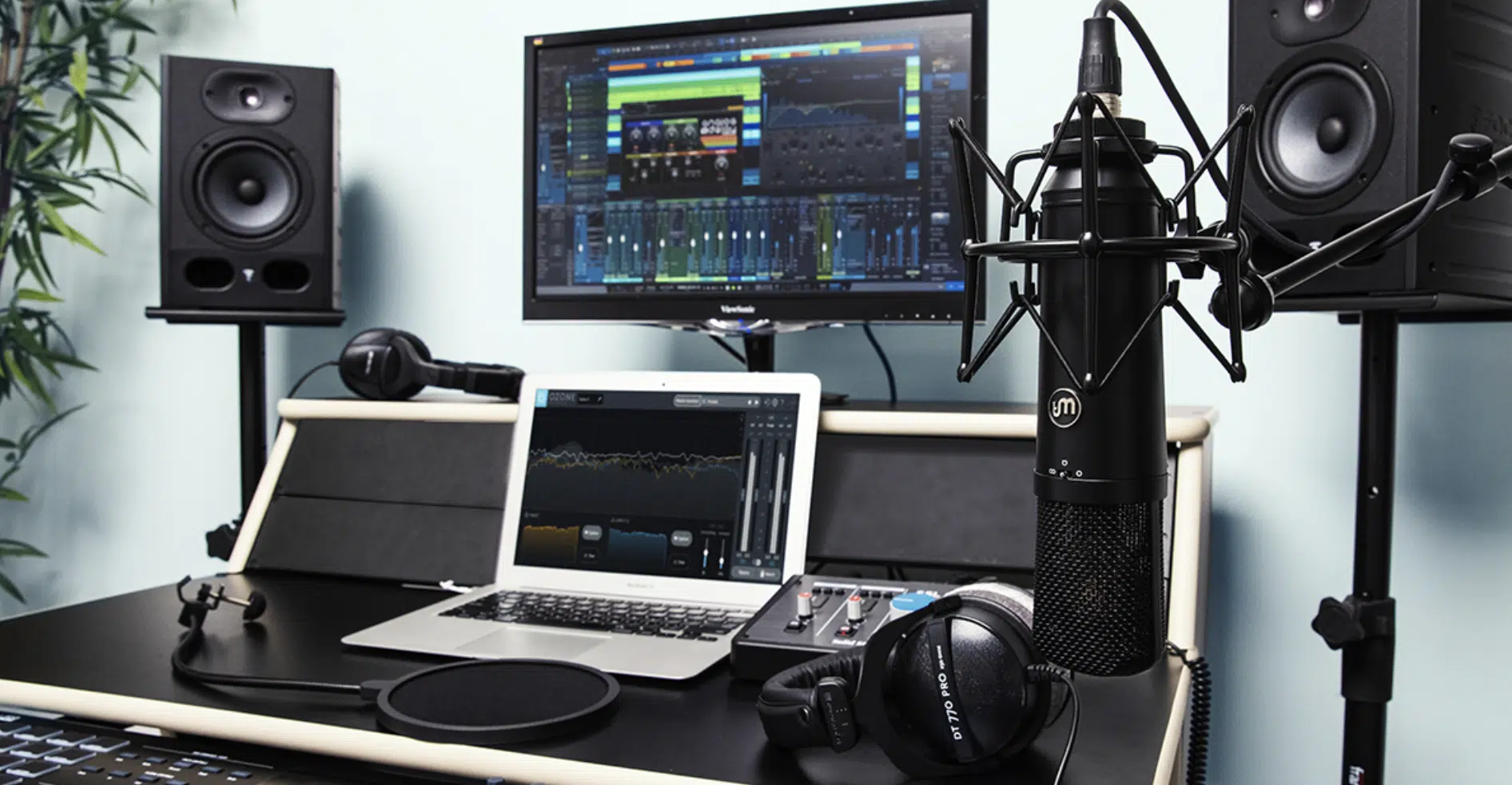
The recording process is a multistage journey that requires careful planning and execution, not just reserved for a recording engineer.
Initially, you should create a session template in your DAW, incorporating tracks for each instrument or sound you plan to use.
As a music producer, this preparation speeds up the recording and lets you focus on capturing the best performance possible.
You’ll then move to the tracking phase, where each instrument is recorded, often starting with the rhythm section (drums and bass) to establish a solid foundation.
High-quality preamps and microphones are critical here; ask a fellow record producer.
Precise mic placement is also vital to capture the nuances of each instrument.
NOTE: While many modern music producers rely heavily on digital samples, there’s an undeniable magic to capturing a live performance.
Following this, you’ll dive into overdubs 一 layering additional instruments or vocals to add richness and depth to the track.
Here, you might employ punch-in techniques to replace or augment specific recording portions, ensuring every note is pitch-perfect.
Finally, you’ll wrap up with scratch tracks and guide vocals if you haven’t done so already.
These are not meant for the final mix but serve as references for other musicians who might join the project later.
Once all elements are recorded, you’ll have a raw, unmixed version of your track that’s ready for the next steps in the production process.
-
Crafting the Different Elements of Your Track
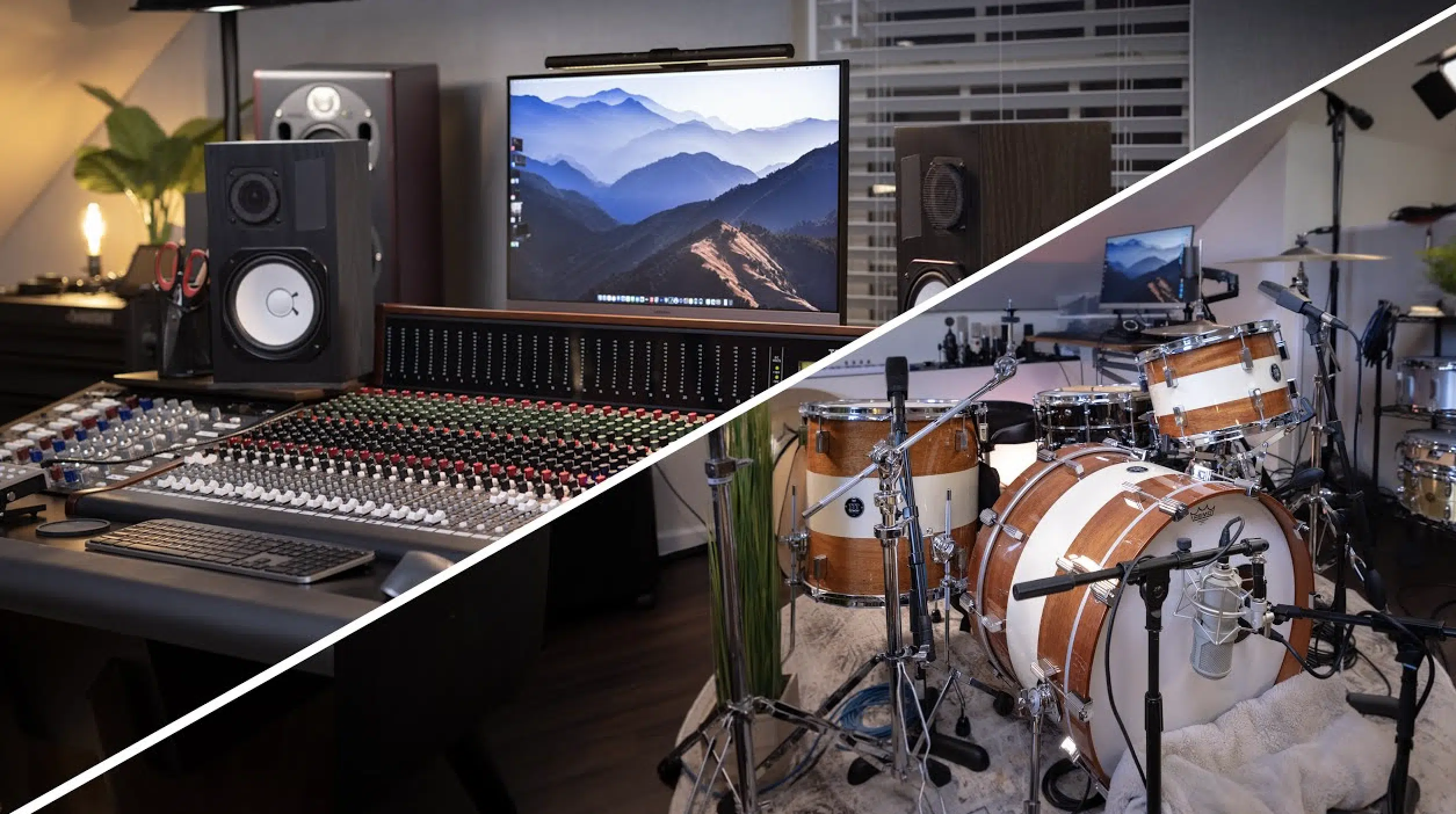
A great track is more than just a sum of its parts; it’s how those parts interact that really makes the magic happen.
This is where arrangement and composition come into play.
As a music producer, you’re responsible for crafting the different elements of your track to create a cohesive whole.
- The kick drum & bassline 一 Form the backbone of your track.
- Synths, guitars, or other melodic elements 一 Add flavor and complexity.
- Vocal lines (sung or sampled) 一 Often serve as the music’s emotional core.
Creating a compelling arrangement as a music producer often involves experimenting with song structure.
Maybe your track benefits from a pre-chorus to build tension, or perhaps an instrumental break is the perfect palette cleanser.
Don’t be afraid to tweak and rearrange sections of your track as you go along; sometimes, the best ideas come from improvisation (like your favorite music producers).
You also need to pay attention to dynamics, which vary in energy and intensity throughout the track.
Too much monotony and you’ll lose the listener’s interest; too many peaks and valleys, and you risk creating a jarring experience.
-
Audio Effects & Beyond
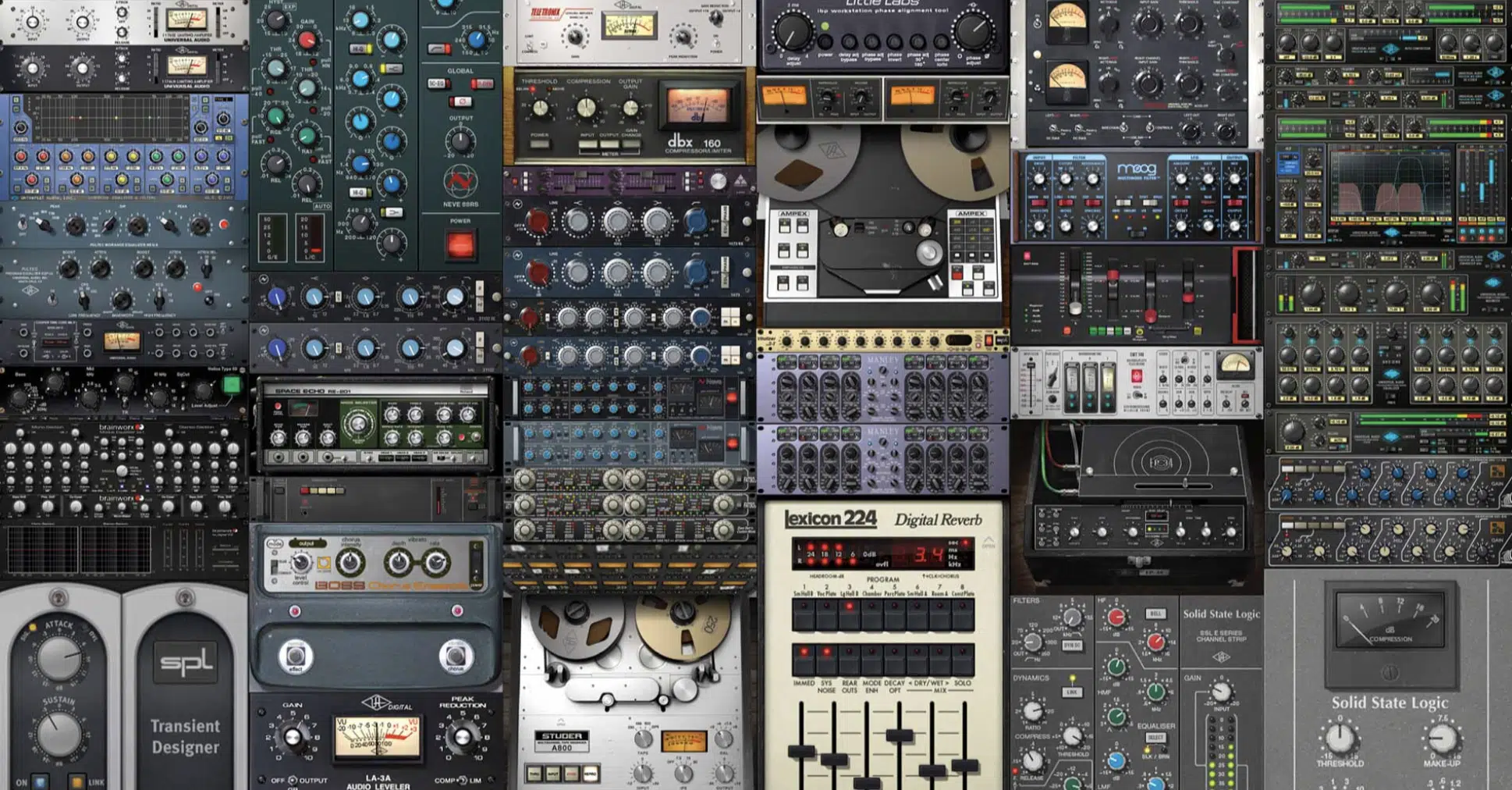
One of the most exciting phases as a music producer is the application of audio effects, which can transform a flat recording into a sonic masterpiece.
Reverb and delay can add depth and space to your track 一 making it sound like it was recorded in anything from a small room to a massive cathedral.
Compression is another key effect used to control the dynamics of individual tracks and the mix as a whole.
Equalization (EQ) is crucial for carving out a space for each instrument within the mix.
By boosting or cutting specific frequency ranges, you can ensure that each element of your track shines through clearly without masking others.
Techniques like side-chain compression can also be used to make sure that, for example, your kick drum cuts through a dense mix.
Like other music producers, you can also get creative with more exotic effects to give your track a unique sound, like:
Automation is another powerful tool you hold as a music producer, allowing you to vary effects parameters over time, giving your track a sense of movement and evolution.
But a word to the wise…
Effects should serve the song, even though it’s super easy to go overboard and end up with a muddy, indistinct mix.
So, always keep the emotional intent of the track in mind and use effects to enhance, not overpower your music.
When you’re learning how to become a music producer, these effects can make all the difference in your creative process.
Techniques & Production Hacks: Elevating Your Music Creation Process
Dive deeper into the vast ocean of music production techniques.
Let’s explore ways to elevate your craft from the game-changing to the subtle.
-
Producing Music: Cutting-Edge Techniques (Advanced)
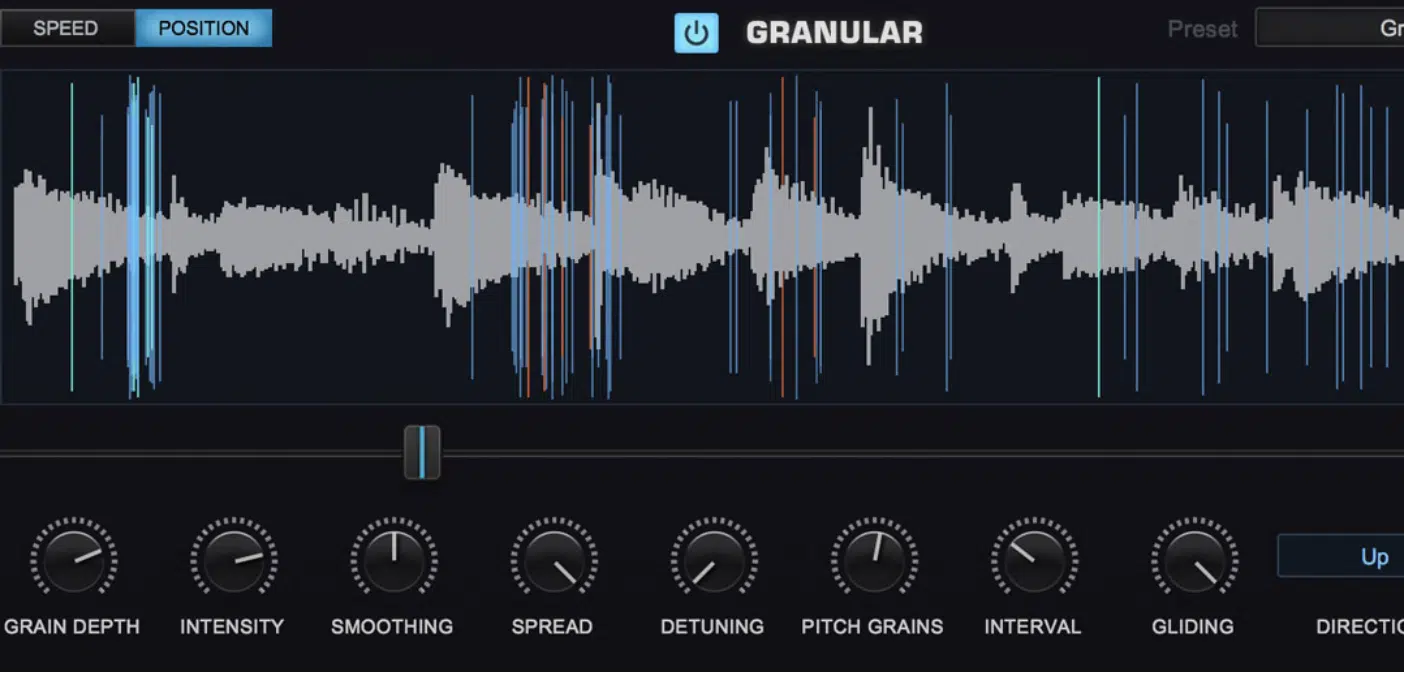
If you’re looking to take your music production skills to the next level, staying ahead of the latest techniques and technologies is essential.
Advanced sampling methods, for instance, allow you to create intricate textures and atmospheres from a single sound source.
Techniques like granular synthesis can turn simple sounds into complex, evolving landscapes.
Another cutting-edge technique involves spatial audio and 3D mixing.
NOTE: This is particularly relevant for a music producer producing content for virtual reality or augmented reality experiences.
This technique allows you to place sound sources in a three-dimensional space around the listener 一 creating an incredibly immersive experience.
Don’t underestimate the power of collaboration with other music producers, either.
With the advent of cloud-based DAWs and remote recording technologies, you can collaborate with musicians and successful music producers worldwide, all from the comfort of your home studio.
Finally, as a music producer, mastering the art of sound design can set you apart from the pack.
Whether you’re creating your own unique synth patches or crafting mind-blowing audio effects, a deep understanding of sound design can add a unique flavor when you’re producing music.
And help your beats/music get noticed and excel naturally.
-
How to Become a Music Producer: Tips & Tricks To Stand Out
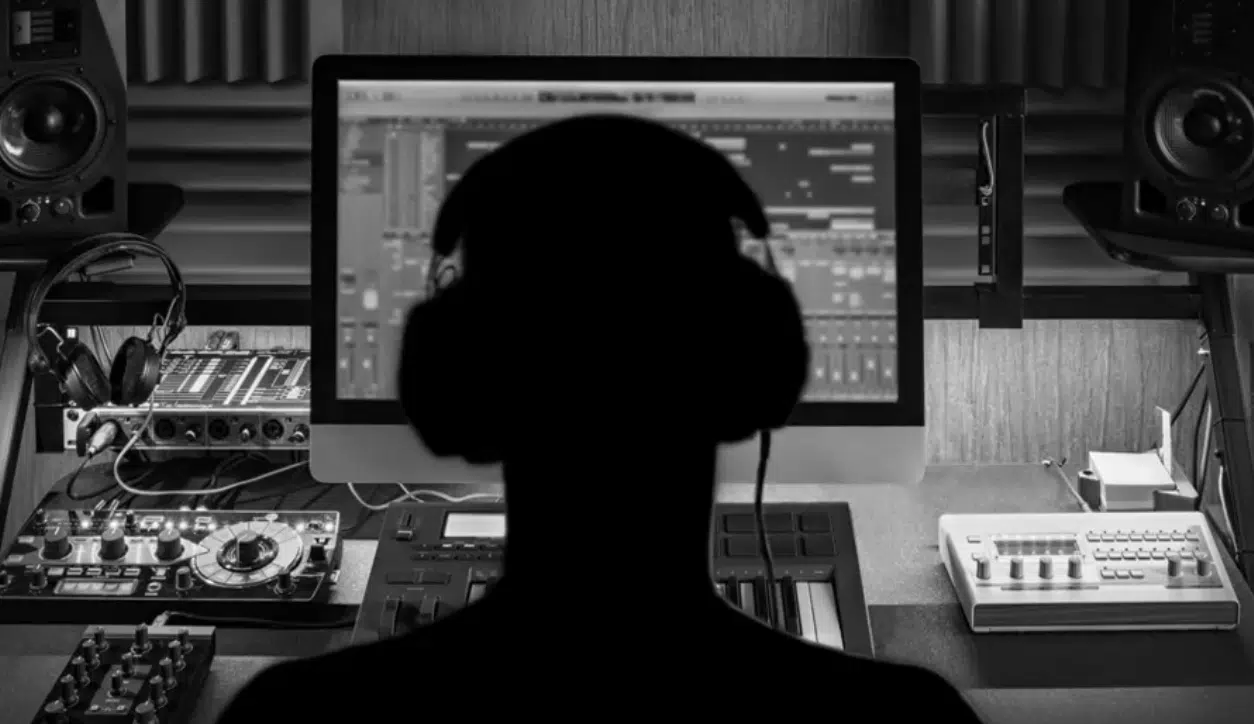
Breaking into the world of music production is no small feat, as the music industry is filled with talented music producers.
However, there are ways to elevate your game and stand out successfully.
#1. First and foremost, networking is crucial.
The old saying, “It’s not what you know, but who you know,” holds considerable weight when making music.
Connect with other music industry professionals, from artists and other music producers to music executives, both online and offline.
#2. Never stop learning.
The music production landscape always evolves, with new technologies and techniques emerging regularly.
Stay ahead of the curve by continuously updating your skills, whether through:
- Formal education
- Self-studying
- Hands-on experimentation
Webinars, online tutorials, industry conferences, and music production programs can all be invaluable resources for learning new tips and tricks as a music producer.
If you’re looking for the most beneficial music production affiliate program, we’ve got you covered.
#3. Develop a unique style or signature sound.
While it’s important to be versatile as a music producer (especially when starting), having a unique sonic identity can make you memorable to artists, listeners, and music industry professionals.
This doesn’t mean pigeonholing yourself into one genre or style but rather developing a unique approach or aesthetic that sets your work apart.
#4. Always be business-savvy.
As a music producer, understanding the business side of music production can provide a significant edge.
From contract negotiation to copyright law, a solid grasp of the industry’s legal and financial aspects will protect you and open doors to new opportunities.
#5. Your portfolio is your calling card.
Invest time creating a diverse, high-quality portfolio to showcase your best work.
Include various genres and styles, and keep it updated as you complete new projects.
An impressive portfolio showcases your skills and provides tangible proof of your capabilities 一 helping you stand out as a music producer in a crowded field.
By focusing on these areas, you’ll be well on your way to a successful music career as a music producer.
-
Perfecting Arrangements
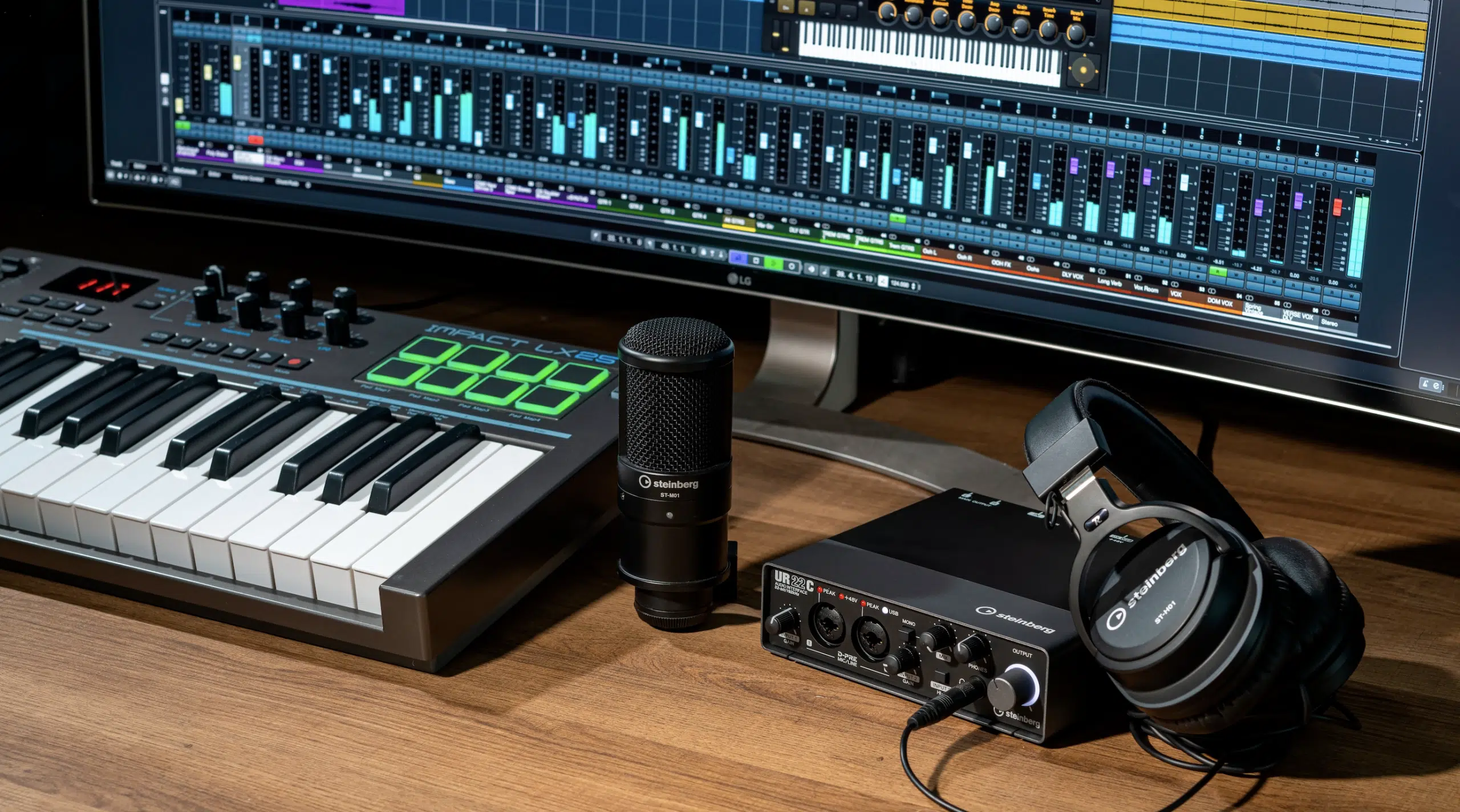
Arrangement is the art of putting the pieces of your musical puzzle together.
It’s all about creating a structure that keeps the listener engaged from start to finish and every moment in between.
Start by setting clear focal points within your arrangement.
This means you should ensure your track has standout elements that fully capture your listeners’ attention, like, for example:
- Vocal melody
- A guitar solo
- A synth lead
- Risers
- Pauses
- Etc.
As a music producer, you should always use dynamic contrast to your advantage.
Varying the intensity of different sections can give your music emotional depth.
Transitional elements (such as drum fills or subtle effects) can bridge different sections smoothly, maintaining cohesion.
Also, don’t underestimate the power of silence or minimalism.
Sometimes, pulling back on instrumentation can heighten the impact of an epic, jaw-dropping musical moment.
A good trick is to picture the songs that captivate you and ask yourself what draws you to this section.
Then, try to incorporate some of that unique flair into your tracks (and enhance them) to become a more innovative music producer.
Enhancing Your Music Creation Skills To Break Into The Music Industry
Music production is an ever-evolving field, and the most successful producers continue to grow and adapt.
When it comes to enhancing your music creation skills, several key areas deserve attention:
#1. Music Theory Mastery
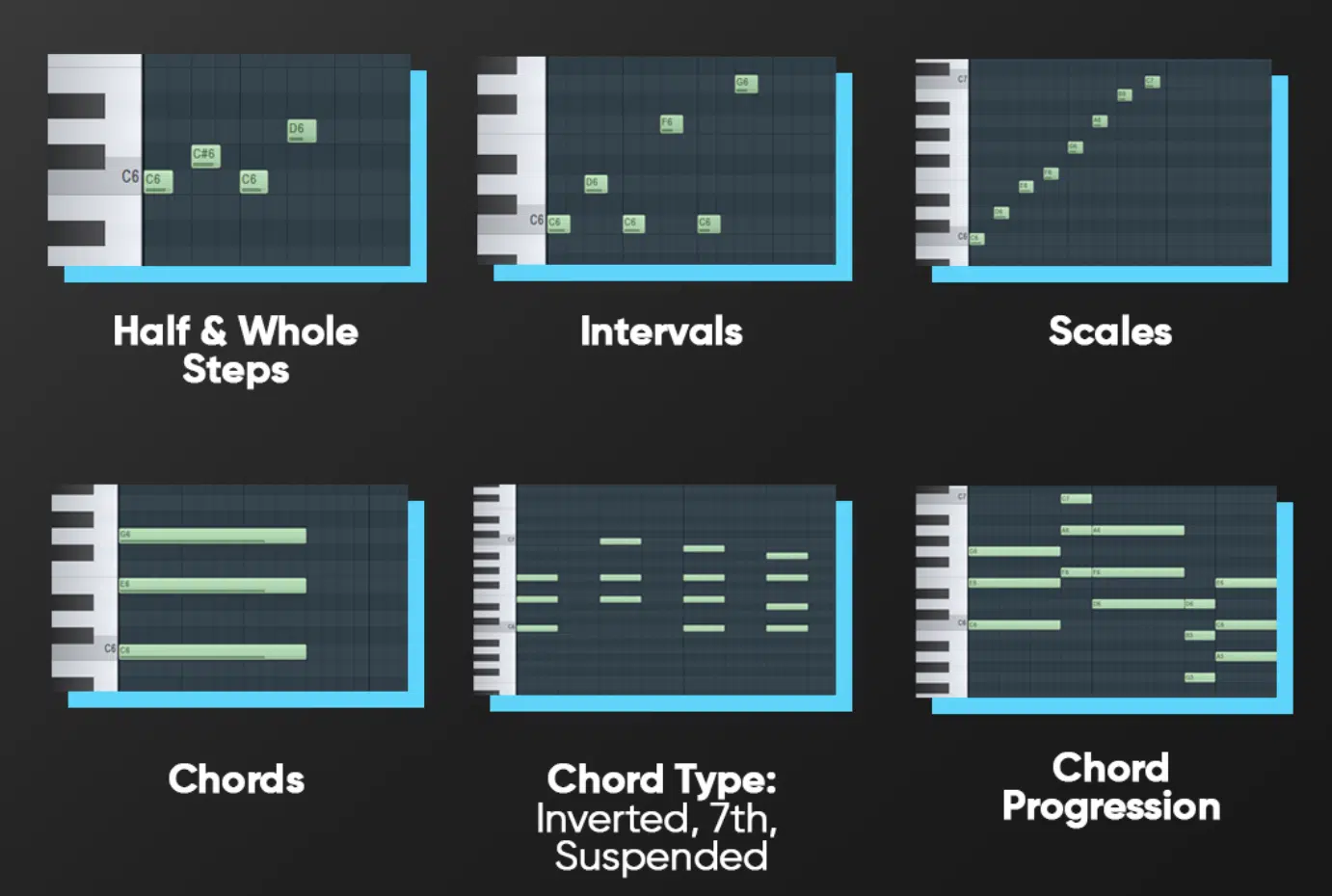
While some music producers manage without a deep understanding of music theory, those who do invest the time to study it often find that they can communicate more effectively with musicians and make more informed creative choices.
You don’t have to become a theory wizard overnight, but make sure to familiarize yourself with the basics, like:
- Scales
- Chords
- Song structure
This will help your workflow and make experimenting and breaking the rules easier.
Many online courses, apps, and even YouTube tutorials make learning music theory more accessible than ever.
#2. Sound Design Exploration
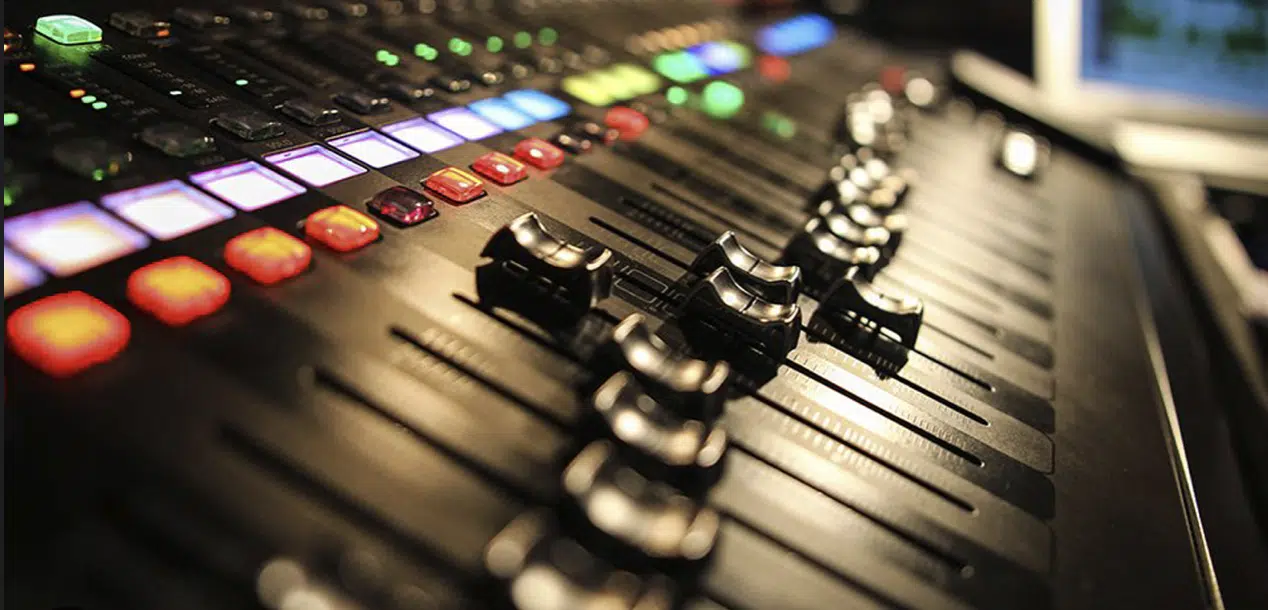
In the digital age of music, understanding the nuances of sound design can set your tracks apart.
Sound design can be an invaluable skill, whether it’s manipulating synth parameters to create a unique texture or layering drum samples for a fatter sound.
Specialized sound design courses are available, and numerous DAWs come with stock plugins that can be great learning tools.
Not many music producers bring the skills of sound design to the table, so by doing so, you can truly stand out.
#3. Advanced Mixing Techniques
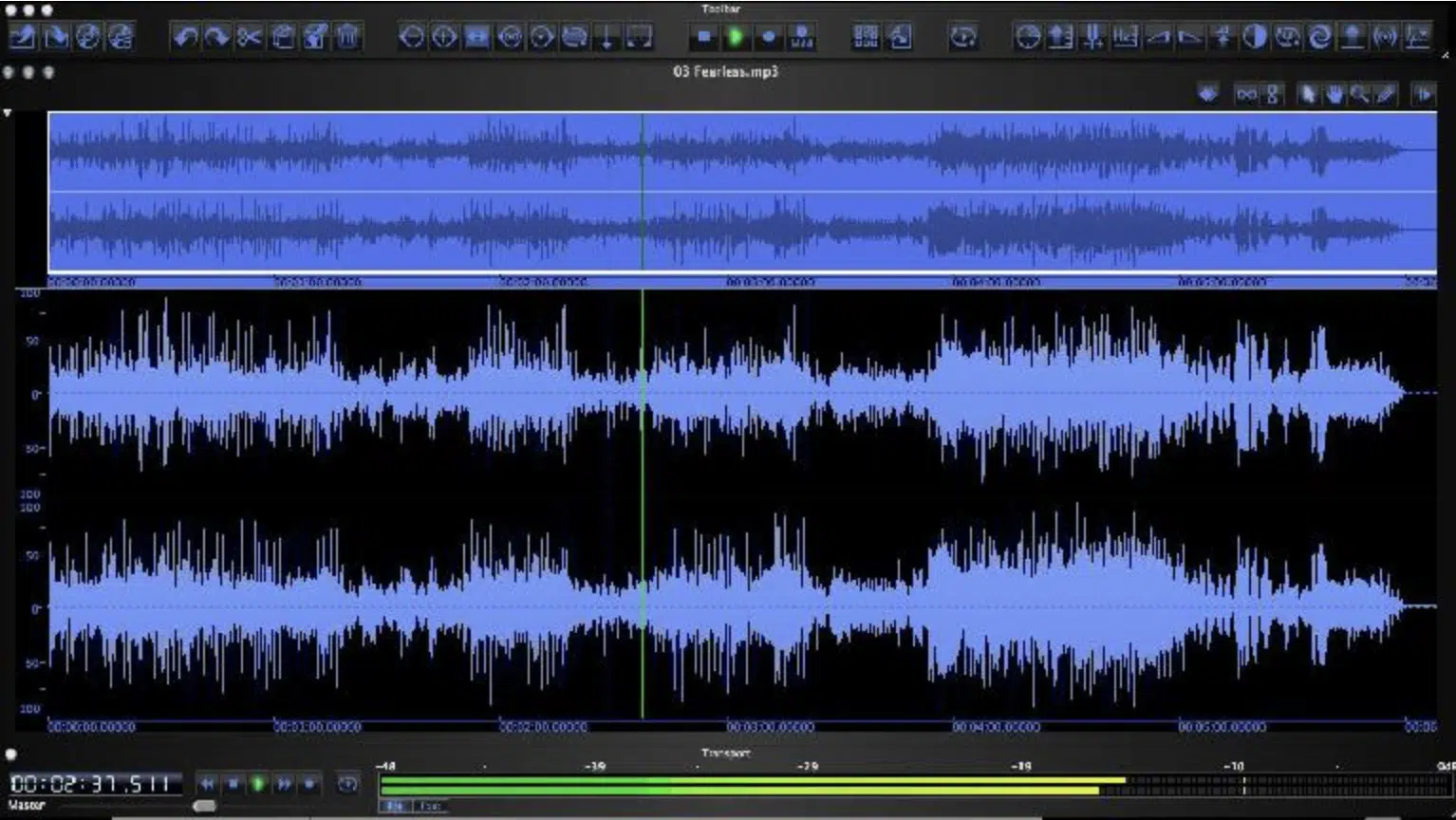
While most producers grasp the fundamentals of mixing when making music, diving deeper into the subject can elevate your music to professional levels.
For example, you can learn about:
- Advanced EQ techniques
- Dynamic range
- Spatial placement
All of these factors can make your mixes more balanced and captivating.
Mastering the art of mixing is also crucial for those who want to be versatile and genre-agnostic music producers.
#4. Learning Cutting-Edge Production Software
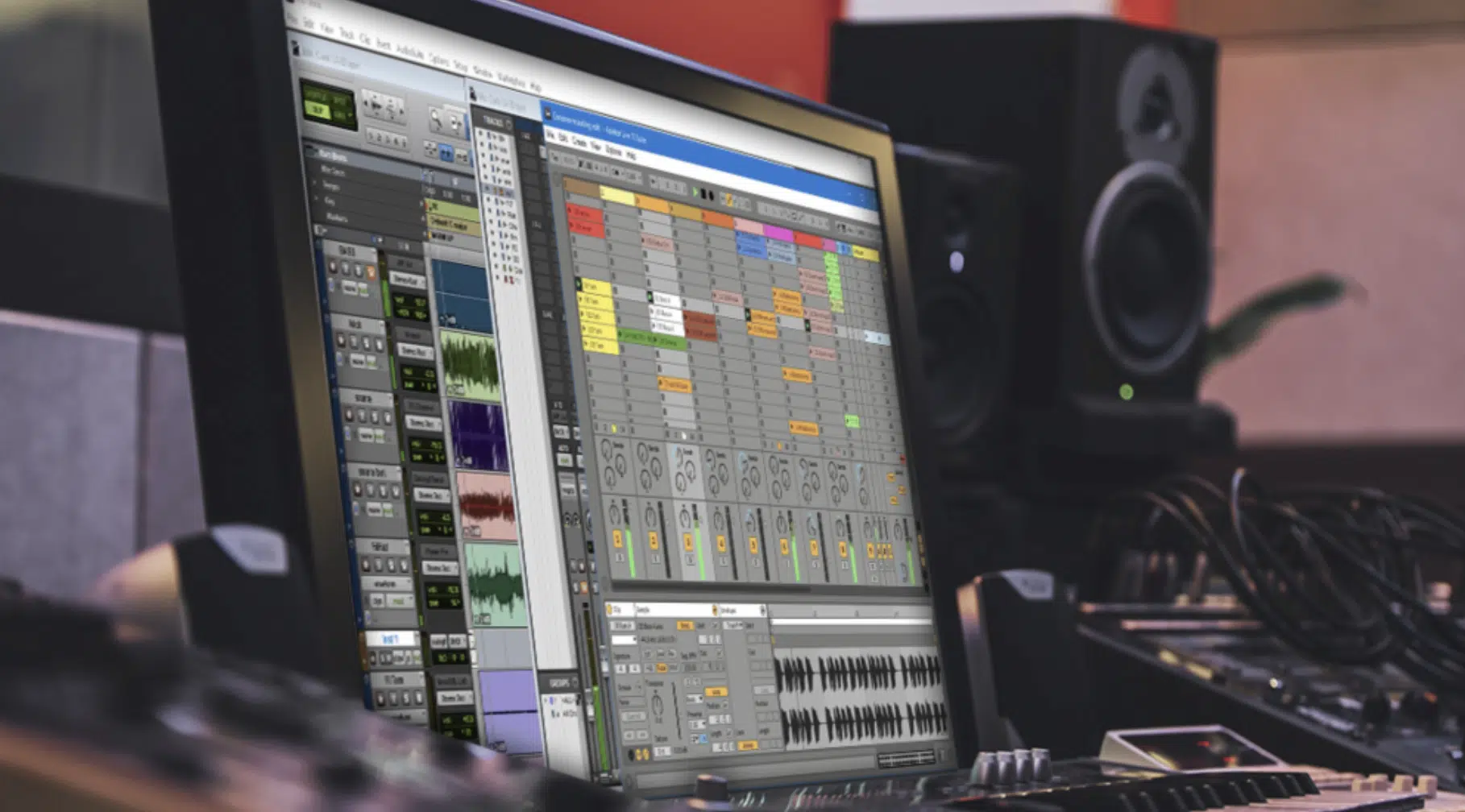
The digital landscape of music production is always changing, with new plugins, sample libraries, and DAW updates always coming out.
Staying up-to-date with these tools can be a game-changer.
Set aside time each week to:
- Explore new software options
- Read reviews
- Engage in online communities
This way, you can stay on top of all new developments and breakthroughs, which happen almost constantly.
#5. Experimentation
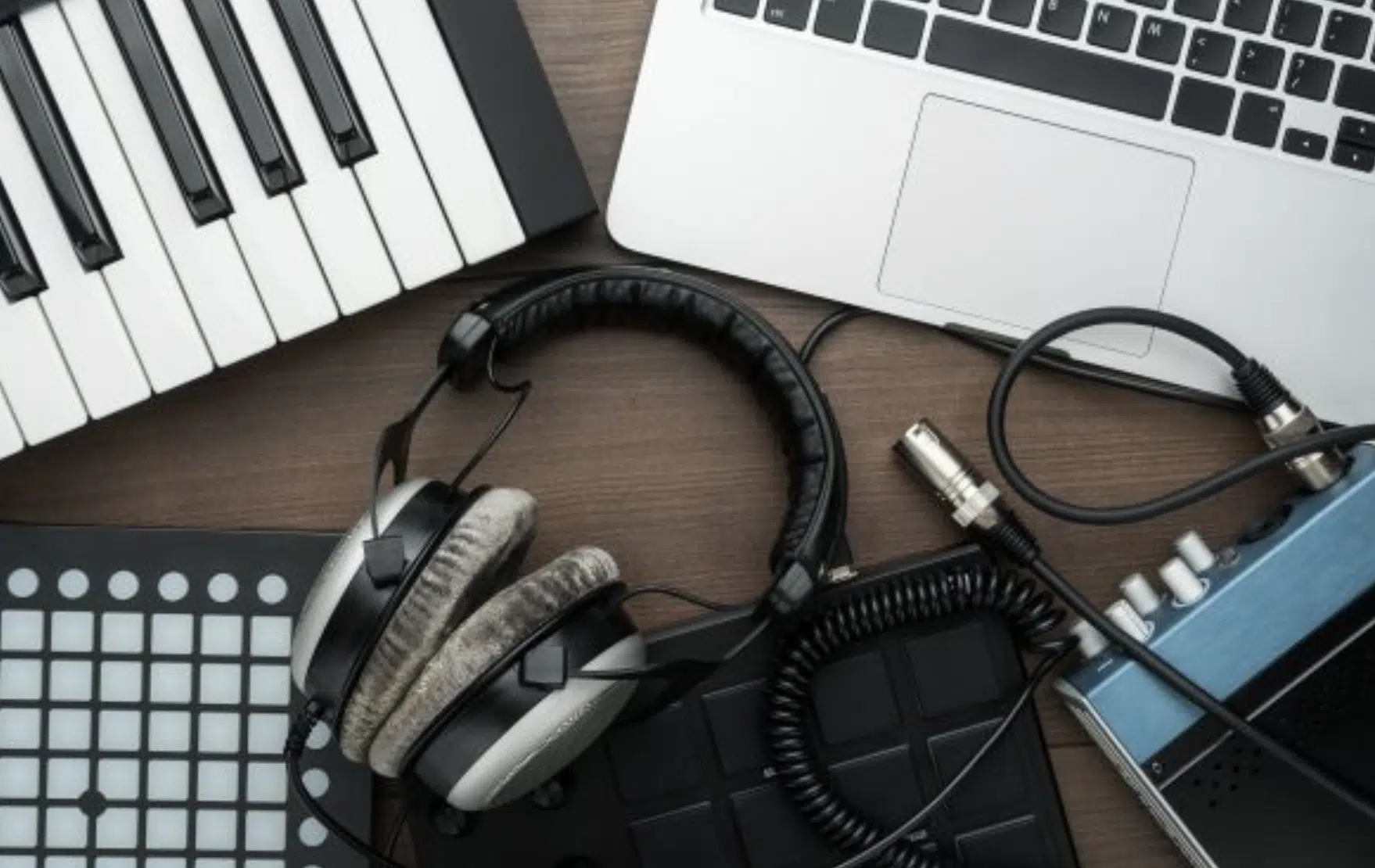
No producer ever became successful by playing it safe. Innovation is key in music production.
Take risks with your arrangements, try unconventional sound design, or mix genres to create something truly unique.
Experimentation could be as simple as altering the tempo midway through a track or as complex as fusing elements from multiple genres.
The more you experiment, the more you learn about what works and what doesn’t 一 both technically and creatively.
The Business Side of Music Production
As you climb the creative ladder as a music producer, you’ll find that music production is as much about business savvy as it is about artistic expression.
So, let’s delve into the commerce side of this field, which will definitely come in handy.
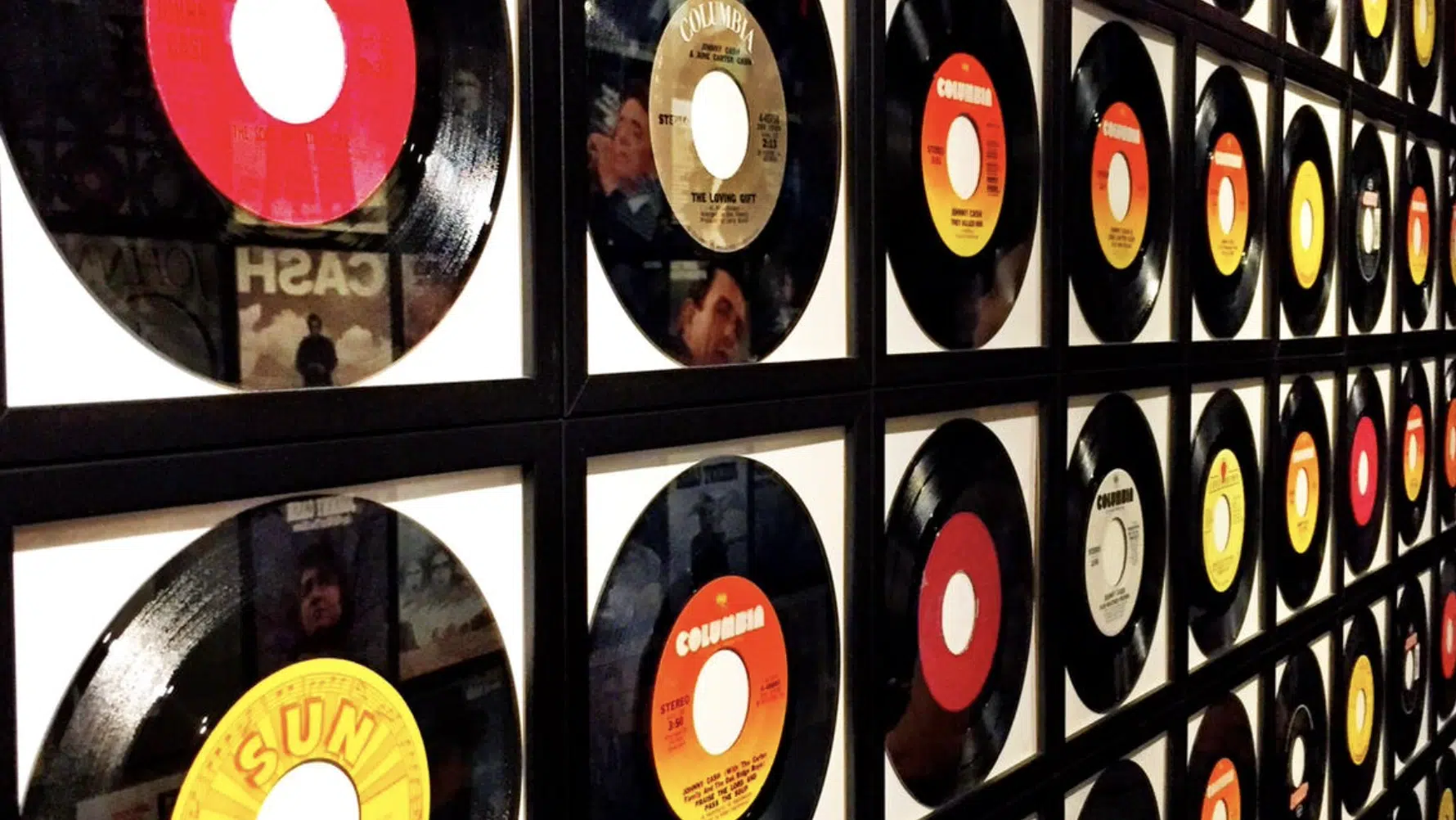
In today’s digital age, you have more options than ever: you can go solo and maintain full creative control or sign with a label offering resources and a larger platform.
Major labels can provide significant financial backing and marketing resources.
However, they often do so at the cost of some creative control and a larger cut of the profits.
Independent labels offer a middle ground 一 often providing more freedom and a more equitable financial arrangement, though with fewer resources than major labels.
If you decide to go solo as a music producer, digital distribution platforms like DistroKid, TuneCore, and CD Baby allow you to easily get your music on major streaming platforms.
Ultimately, your choice will depend on:
- Your music career goals.
- Your financial needs.
- How much creative control you wish to retain.
Certain music producers will swear by major labels; others will claim the independent route is the way to go.
Make sure to always consider your personal needs and desires as a music producer for the best results.
-
Music Publishing, Royalties, and Rights

Understanding music publishing is crucial for any music producer.
Publishing deals can be a significant income stream but are also complex and fraught with pitfalls.
The main types of royalties include:
- Mechanical
- Performance
- Synchronization
Each unique type has its own collection method and rate.
Copyright is the bedrock of music publishing, so make sure always to register your work to protect it and to be eligible for royalties.
Various organizations handle royalty collections.
In the U.S., ASCAP and BMI are the primary Performing Rights Organizations.
NOTE: Digital rights management (DRM) also plays a role in the online era, dictating how your music can be distributed and consumed digitally.
Before entering any agreement, consult with legal professionals to ensure you’re making informed decisions, as what a music producer makes depends on a few vital variables.
-
Breaking into the Music Industry
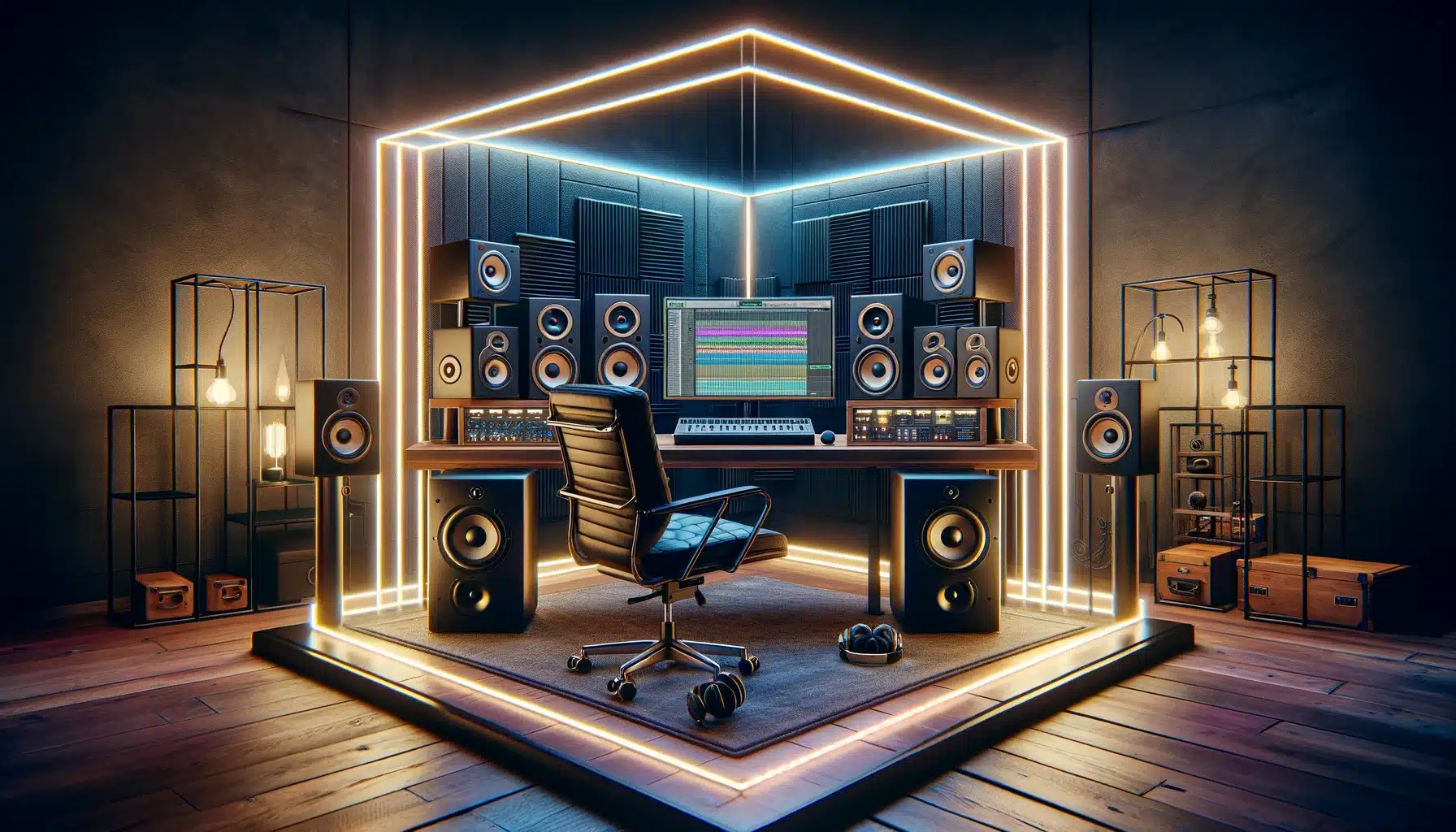
As a music producer, talent is essential, that’s undeniable… but so is visibility.
Meaning, you should always showcase your produced music by:
- Utilizing social media platforms
- Submitting to music blogs
- Be active on online communities
Also, try participating in music production competitions or hackathons to get your name out there and meet like-minded individuals.
An internship or mentorship with an experienced producer can also provide invaluable music industry insights.
NOTE: Always have an electronic press kit ready to go, complete with a biography, high-quality photos, and samples of your work.
Lastly, just remember that networking is key.
A recommendation from someone within the industry can open doors that would otherwise remain closed.
-
Promoting Your Music & Making Money

Multiple income streams are the name of the game in today’s music industry.
Apart from music sales and streaming, consider:
- Merchandising
- Live performances (which can include digital beat-making sessions)
- Teaching production classes
- Making loops
- Etc.
These creative things can all serve as potential revenue streams.
Online marketing is essential 一 from Instagram stories to email newsletters, consistent and engaging content can help you build a fanbase.
Crowdfunding platforms like Kickstarter can be a way to finance bigger projects, involving your audience in the creation process.
Utilize analytics tools to understand your audience better.
Knowing who listens to your music can inform your marketing strategies and influence your creative decisions.
Also, never underestimate the power of a well-timed release; understanding the best times to drop new music can maximize visibility and impact.
If you want to learn all the different and exciting ways to make money as a music producer, we’ve got you covered.
Bonus: Working in a Recording Studio
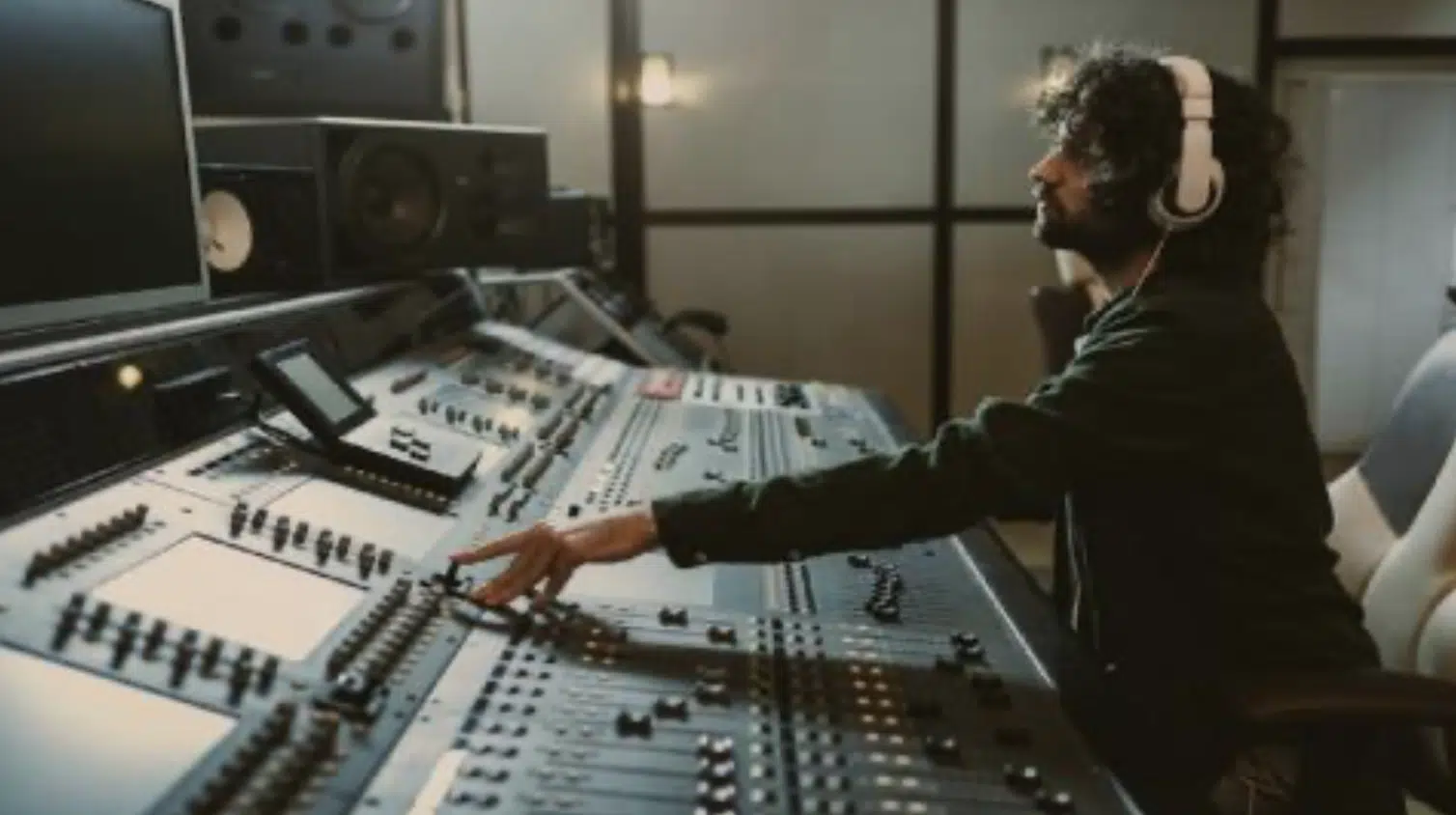
So, you’ve honed your skills and are considering taking your production to the next level by dedicating some time to recording music in a professional recording studio.
Here’s what you need to know:
1. Recording Studio Dynamics
Not all recording studios are created equal; each one often specializes in specific genres or types of recording equipment.
Some studios are perfect for tracking live bands with vintage gear 一 while others may be more suited for electronic music production.
Before booking, always visit the recording studio to get a feel for the space, the available recording equipment, and the general atmosphere.
#2. Maximizing Your Recording Session
Time in a recording studio is typically expensive, so planning ahead is crucial.
Make sure your recording session is organized with a detailed itinerary to ensure you make the most out of your studio time.
This includes prepping your project files, setting up your recording equipment in advance, and clearly envision what you want to accomplish during the recording session.
#3. Collaboration and Expertise
One of the benefits of working in a professional recording studio is the availability of experienced engineers and producers.
Their expertise can offer fresh perspectives and elevate the quality of your recording music.
Plus, the networking opportunities from working in such an environment can be invaluable.
#4. Quality Over Quantity
Professional recording studios offer high-end recording equipment you might not have in your home setup.
This could be the perfect time to record those intricate drum patterns or to use that vintage microphone you’ve always wanted to try.
The quality of recording equipment in a professional studio can make a significant difference in the final product.
#5. After the Recording Session
Once the recording session is complete, ensure you have all the project files and recordings.
Often, studios will give you the option to store your session data with them for a period, but it’s good practice to keep backups.
Working in a recording studio can be an exhilarating experience.
It provides an opportunity to collaborate, to access top-notch recording equipment, and to experience your music in a new light.
Remember, the most successful stints in recording studios come from adequate preparation, collaboration, and smart choices in selecting the right studio for your music genre and production style.
Music Producer: Final Thoughts
From understanding the extensive roles and responsibilities to setting up your own recording studio, every element is crucial for your evolution as a music producer.
And, after this article, you now have all the tools needed to excel and exceed as a music production master.
However, let’s not forget that at the heart of any extraordinary track are high-quality sounds…
While talent and skills are essential, having access to top-notch sounds can make all the difference.
That’s where the these Free Hip Hop Drum Kit comes in.
Offering a pack of 50+ free drum samples (including loops with matching audio & MIDI stems) this kit is your gateway to producing tracks that not only sound professional but are also on par with industry standards.
Whether you’re working from your home studio or booking sessions in professional recording studios, this drum kit can seamlessly integrate into your setup.
It will give you the versatility and quality you need.
Remember, the tools you use are as crucial as your skills in shaping your journey to becoming a remarkable music producer.
So, as this article as your guide, go make some amazing music and take the music industry by storm.
Until next time…







Leave a Reply
You must belogged in to post a comment.